Albert Steinrück
Nacimiento : 1872-05-20, Bad Arolsen, Germany
Muerte : 1929-02-10

Lensky

Based on the play and subsequent operetta of the same name.

Froyant
Police battle against a gang of blackmailers known as The Crimson Circle.
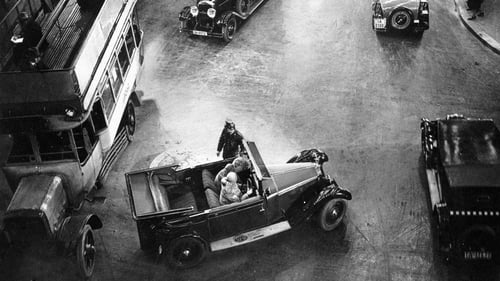
Hauptwachtmeister Holk
Una mujer bien vestida (Betty Amann) roba una piedra preciosa de una joyería de Berlín. Ella intenta seducir al policía (Gustav Frölich) que la captura, y él sucumbirá gradualmente a sus encantos.
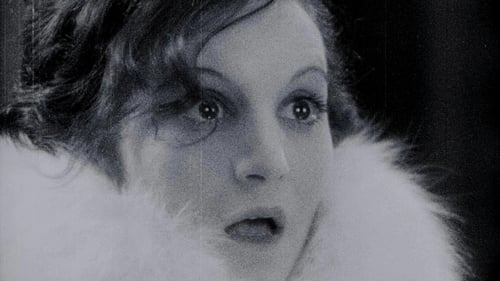
Von Dorsday
While staying with her aunt at a fashionable spa, Else receives an unexpected telegram from her mother, begging her to save her father from debtor’s jail. The only way out, it seems, is to approach an elderly acquaintance in order to borrow money from him. Through this telegram, Else is forced into the reality of a world entirely at odds with her romantic imagination – with horrific consequences.

Handwerker
A handsome barber in Sweden doesn't know he's actually the Crown Prince of a Balkan kingdom in this charming Swedish-German comedy that effortlessly weaves together multiple Ruritanian tropes.

Kallborn, Wirt

Leyendecker

Rabbi Süß

Der Mueller
A mill situated on the border between two unnamed countries and the residents therein become pawns in a future war.

Paul Schröder
"Girls for Sale!" - White slavers lure young girls to Rio de Janeiro by promising them jobs as showgirls and nightclub singers, then force them into prostitution.

Kommerzienrat Enzenberg
Children's Souls Accuse You is a 1927 German silent drama film directed by Curtis Bernhardt and starring Albert Steinrück, Nathalie Lissenko and Walter Rilla. It was made with an anti-abortion theme.

Film by Richard Oswald.

Forstmeister von Rüdiger

Der Gutsvogt
The story of Brennende Grenze (= Burning Border) starts after the end of WWI. Polish franctireurs invade the German bordering regions which are to be given to Poland as agreed on in the post-war peace treaties. Luise von Willkühnen's manor is invaded by Ladislaus von Zeremski, his lover Nadja and their gang. They treaten the inhabitants until Luise's son kills Zeremski.

Bronsa
La primera coproducción germano-soviética procesó once cuentos de Chejov. En los créditos iniciales se lee: "Antes de la guerra, la gente de Rusia vivía en el interior de Rusia. Las 'bendiciones' de la civilización no les habían llegado. De esas personas superfluas que viven en una pequeña ciudad rusa habla esta película". Se trata de una farsa provincial idílica con acentos trágicamente conmovedores, exageraciones grotescas y humor grosero, caracterizada por una humanidad conciliadora. La película se creyó perdida durante mucho tiempo y se reconstruyó en 1978. (Eddie Constanti)


Mason
Lord Ernest Clifton lives with his beautiful wife, Gladys, at Easton Lodge. He has lost immense wealth in the lap of his uncle's death. One day Lord Clifton receives a mysterious package with an even more mysterious letter from his uncle. Three cuckoo clocks that strike only once a month should show him the way to find the second part of the pot of gold buried somewhere. Ernest's thirst for adventure only awakens and waits for the first cuckoo clock to mark the room number of a hotel in Cairo, where the second cuckoo clock hangs.

Kuno von Giech

Floris

Judge Brack
Silent adaptation of the famous play by Henrik Ibsen. This film is believed to be lost.

Philipp Steinherr

Priamos
Helena is a 1924 German silent drama film directed by Manfred Noa and starring Edy Darclea, Vladimir Gajdarov and Albert Steinrück. The film was based on the poem the Iliad by Homer. It was released in two separate parts: The Rape of Helen and The Fall of Troy. It was produced by Bavaria Film at the Emelka Studios in Munich. The film was made on an epic scale with thousands of extras, and large sets which rivalled those of the larger Berlin-based UFA.

King Algarve
A Saracen sultan's disguised son loves an amnesiac Moslem princess.

Werber
The proprietors of a small inn on the Italian coast suddenly have to cater for a company of conscripts on their way to a nearby port. One of the sergeants recognizes Resa as a former "camp-follower". When her husband hears of this he becomes insanely jealous and decides to join the company.
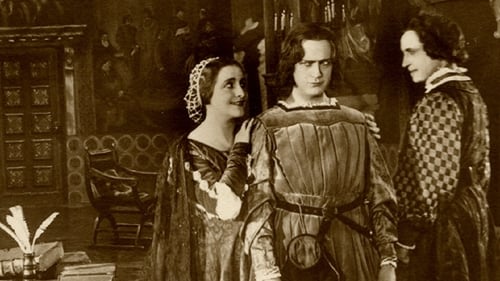
Tubal
El comerciante veneciano Antonio se encuentra en una situación financiera difícil. Para ayudar a su amigo Bassanio, que trata de casarse con la heredera Portia, acude, aunque con disgusto mutuo, al prestamista judío Shylock para pedirle dinero prestado. Pero si Antonio luego no puede pagar ese préstamo, Shylock podrá cortar una libra de carne de su cuerpo. Ése es el trato.

A couple, Hasia and Otto, are brought together by their loss of wealth and status as the imperial era ends, but torn apart by an unusual offer from a wealthy man. The man wishes Otto to marry his daughter, as Otto bares a striking resemblance to his daughter's fiancee who was killed in WWI. In exchange, Otto will want for nothing.

Svetocar Badalic, Master Foundryman
On the surface a straightforward tale of the search for a buried treasure, the film is a textbook example of German expressionism, with the passions of the protagonists conveyed as much through symbolism as action.

Andreas Buonacorsi

Lebedow, Reitknecht
This anti-communist propaganda film discusses the revolutionary curse of communism in the Soviet-Union shortly before and after the fall of czardom in Russia, told from the point of view of Belarusians in exile. Anti-communist copy in color which has been discovered, restored and printed by the Royal Belgian Filmarchive.

Friedrich Wilhelm I.

Directed by Arzén von Cserépy.

Stromminger ( Höchstbauer )
"The Bear Joseph", so named because of a fight with a bear, is rescued by Wally, a farmer's daughter, from a dangerous situation in a vulture's nest. He then calls her "Geierwally". They fall in love. Wally's father disapproves of this romance. He has other plans for Wally.

Andreas
The drama begins when handsome Johannes Riemann (as Richard de la Croix) is summoned to an asylum, to check on insane brother Alfred Abel (as Andreas de la Croix). As we see in a later flashback, the alluring Pola Negri (as Sappho) left the innocent Mr. Abel, a lowly engineer, for his well-heeled boss Albert Steinrück (as George Bertink); this helped drive Mr. Abel insane. Presently, when Mr. Riemann finds Ms. Negri, she leaves Mr. Steinruck and moves in with Riemann.

Zirkusdirektor Mortera

General Braticzek

Max Modersohn

The Closed Chain (German: Die geschlossene Kette) is a 1920 German silent film directed by Paul L. Stein and starring Pola Negri, Aud Egede-Nissen, and Carl Ebert.
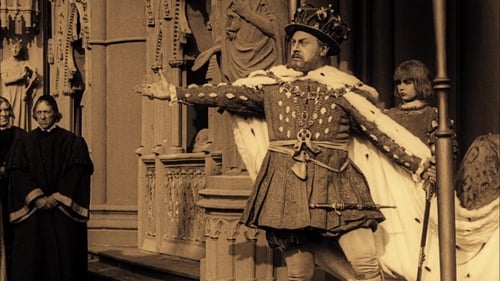
Suntuosa recreación histórica que fue calificada como 'la película más grande de todos los tiempos'. El Enrique VIII robusto, brutal y cruel de Emil Jannings contrasta con la inocencia de la Ana Bolena de Henny Porten. Dos arquitectos dirigieron la construcción de las réplicas de la Torre de Londres, el Castillo de Windsor y la Abadía de Westminster.

Pedro Crespo
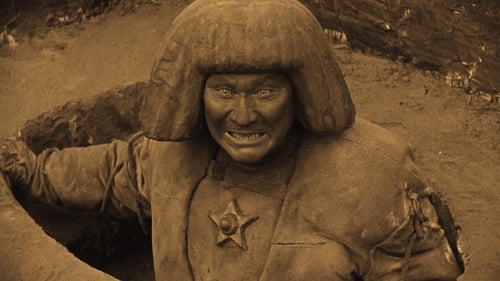
Rabbi Loew
Clásico del cine mudo alemán que cuenta la leyenda de una estatua: el Golem. En el siglo XVI, en el gueto de Praga, vivía el Rabino Löw, mago y maestro en el arte de la nigromancia. Para evitar la expulsión de los judíos, ordenada por el Emperador Rodolfo II, modeló la figura de arcilla del Golem e invocó al espíritu de Astaharot para que le otorgará la vida. Sin embargo, cuando los judíos consiguen quedarse en la ciudad, y el Golem salva la vida del Emperador, el rabino trata de invalidar su conjuro y quitarle la vida porque ya ha realizado su cometido. Pero cuando un sirviente, cegado de amor, se la devuelve, la figura de arcilla escapa de la influencia humana y se convierte en una amenaza. Esta fascinante obra maestra del expresionismo, claro precedente del mito de Frankenstein es, seguramente, la primera gran película sobre monstruos de la historia del cine .

The film was an epic portrayal of the life of Catherine the Great of Russia.

A friend sacrifices himself, taking the blame for a murder upon himself. A guilty conscience will end up killing the real culprit.



















